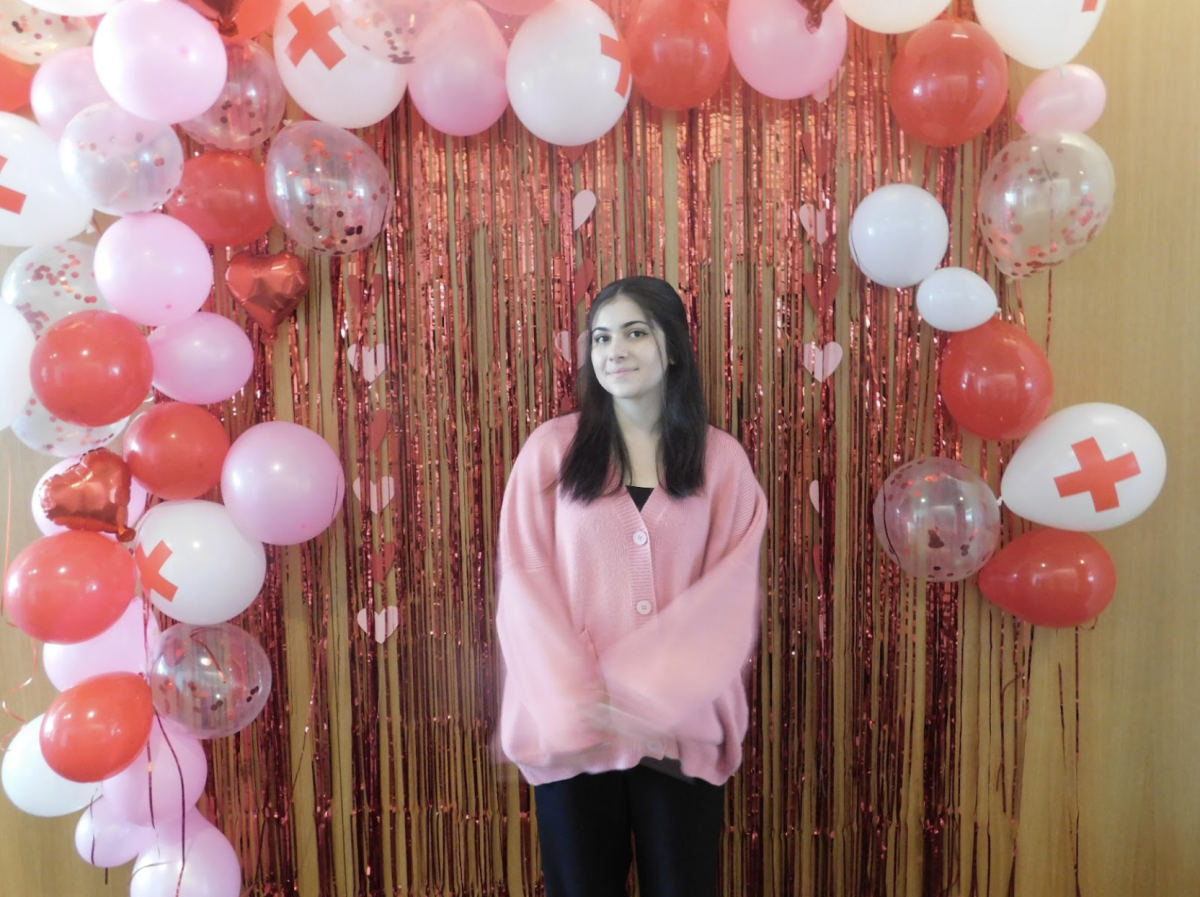The day before Valentine’s Day, the Diablo Room was decked out in red-and-white balloons and heart-shaped streamers for a compassionate cause: donating blood to help save lives.
The Red Cross blood drive, sponsored by Diablo Valley College’s Alpha Gamma Sigma (AGS) chapter, is the first the school has hosted in over five years, and it comes in the midst of a nationwide blood shortage.
After registering and undergoing a confidential health screening, donors at DVC relaxed in comfortable reclining seats during the blood draw. Once their donation was complete, an assortment of free snacks and drinks helped them re-energize and return to their day.
“Honestly, it’s not that bad,” said DVC computer science major and blood donor Faith Adesida. “It sounds scary, but then you actually do it.”
By donating blood, “you’re directly helping other people in need,” said Kaya Roberts, AGS vice president and the main organizer of the drive.
“With the shortage, too, it’s so important to have donors right now.”
Blood and its components, such as platelets and plasma, cannot be manufactured like most prescription medications. Therefore, donations are the only source for lifesaving transfusions.
Public health authorities estimate that a single donation can save up to three lives, but only 3 percent of eligible Americans donate each year.
At the Feb. 13 drive, 40 people registered to donate, including 15 first-time donors. With 33 units of blood collected, organizers estimated that these donors will help save as many as 99 lives.
One donor who wished to remain anonymous said her experience as an emergency room nurse inspired her to make blood donation a regular habit.
“I see the massive amount of blood products that are being used on a daily basis, and I want to be part of the solution,” she said.
The standard whole blood donation process typically takes about an hour, but only eight to 10 minutes of that time is spent physically drawing blood. Donations of specific blood components such as “power red” or platelets may take longer and have additional eligibility criteria for donors.
People who are ineligible to donate blood — due to a variety of reasons including illness, low iron levels, or recent international travel — can still help the cause in other ways, such as volunteering with a drive or simply spreading the word.
DVC economics major and AGS president Ryan Lin, for instance, volunteered to help set up the drive and buy snacks for donors. He said a blood drive is in line with AGS’s goal of “giving back” through community service.
“I think student life and DVC as a community really supports [charitable acts],” Lin said. “It suits [AGS’s] vision very well to be able to support and funnel DVC resources to a cause where every donation can save three lives.”
“There’s no argument against that.”
Roberts and AGS had been hard at work organizing the drive for months. Reserving the Diablo Room and meeting Red Cross standards for collection was the most challenging part of the process, Roberts said, but with the help of DVC club advisors and a Red Cross liaison, they exceeded their donation goal of 22 units.
The Valentine’s theme was a “fun” way to catch the attention of potential donors, according to Roberts. It encouraged people to donate not just as an act of charity, but also as a way to bond.
“For AGS, we really try to have a strong sense of community,” said Roberts. “You’re building relationships through acts of service.”
Willing to donate but missed the opportunity? A Red Cross donation center on 140 Gregory Lane in Pleasant Hill is open to donors seven days a week.
“Who wouldn’t want to donate if you can, and help save a life?” said Roberts. “It’s giving back. It’s very fulfilling.”
She added, “I just wanted to give back in a way that was beyond myself.”









































































